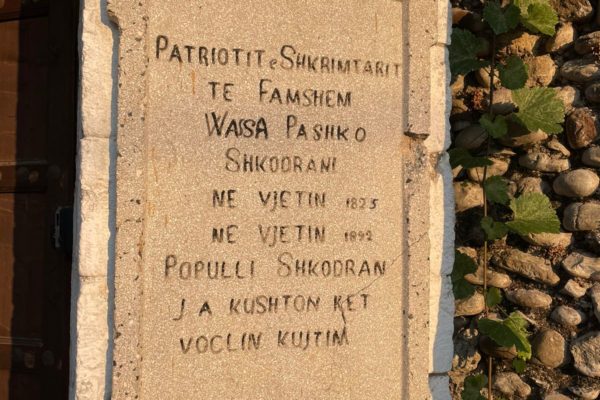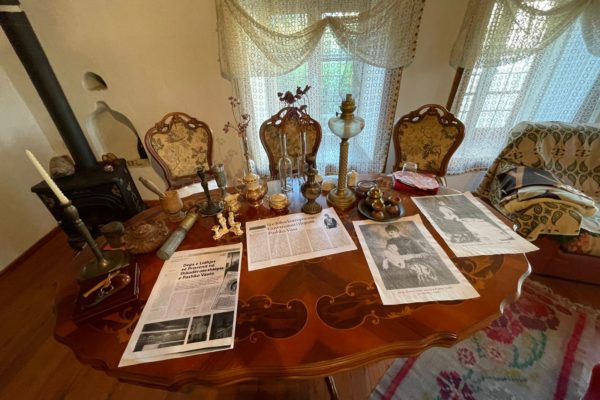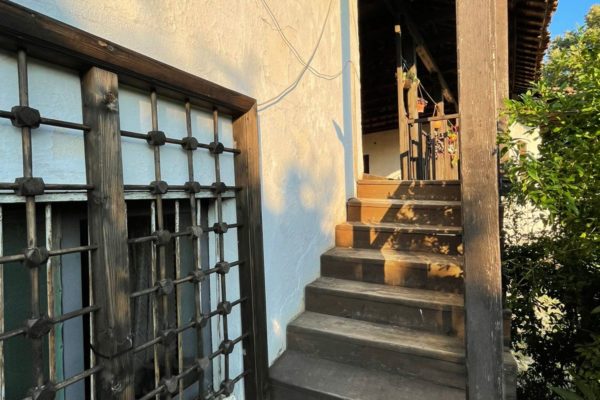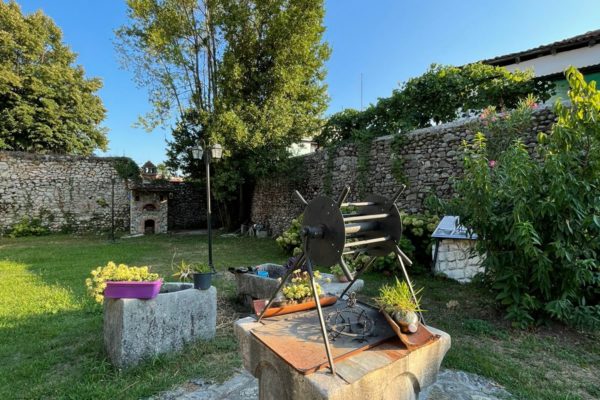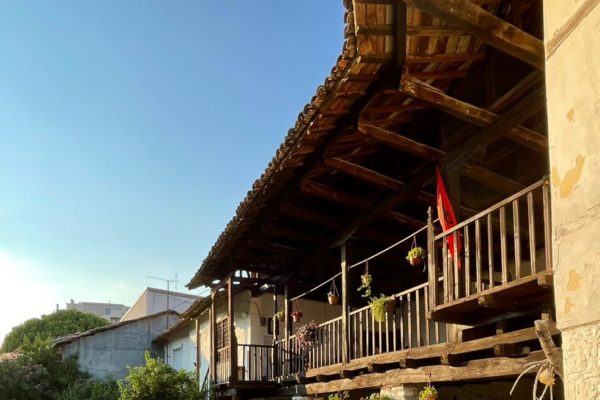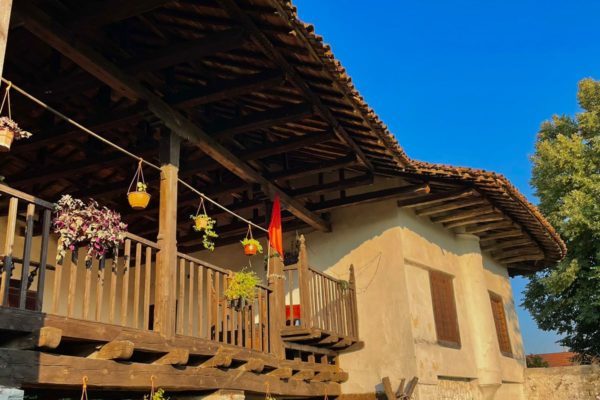Pashko Vasa’s House: A Historical Landmark Connecting Us to the Nationalist Figure
Pashko Vasa’s house in Shkodra, now known as the Cultural Monument, stands as a key relic that links us to the patriotic figure of Pashko Vasa. This house served as the primary base for the League of Prizren and has a remarkable history. It is a prominent location on Shkodra’s tourist map and draws foreign visitors due to its architectural and ethnographic significance.
With a history spanning around 300 years, the house has been fully renovated and restored twice: first in 1977 and then in 2013, both times by the Albanian government. Skilled restorers meticulously recreated the original wooden doors, floors, windows, and wooden carved ceilings. The house has achieved a first-class heritage status and has been returned to the Vasa family’s heirs as private property since 1971. The house is enveloped by the characteristic high walls of Shkodra, featuring an original courtyard with stone washing basins, a stone well, and stone steps.
Local testimonies, particularly from families residing near the League of Prizren branch, such as Suma, Kamsi, Gjonej, Kraja, Guga, and Shiroka families, suggest that this house likely dates back to that period. Its architectural features resemble other Shkodra houses of the same era, sharing similar designs, facades, internal structures, and courtyards. The interior is divided into spacious rooms with intricately carved wooden ceilings, balconies for women, and wall-mounted shelves. The living room, commonly known as the “oda e zjermit,” connects to other rooms through small wooden-carved corridors and features large wooden windows protected by iron grilles, offering a breathtaking view of the courtyard adorned with traditional Shkodra floral motifs.
A large veranda is situated at the end of stone stairs, housing the “qoshja e ndejës” (sitting corner) and characteristic oriental-style lanterns. Below the living quarters are storage spaces for everyday items, heating wood, and gardening tools for the yard. In front of the house, a flower-adorned courtyard welcomes children’s play, while a vegetable and fruit tree garden rests behind.
Today, the house stands as a preferred tourist destination for travelers worldwide, not only for its distinctive architecture but also for accommodations. Several rooms within the Vasa family’s house have been arranged for comfortable stays, allowing visitors to experience a slice of the past. Hopes remain that this house will join the ranks of other well-preserved historic Shkodra homes, adding to the heritage of the city and fulfilling the wish of every patriotic Albanian and Shkodra citizen, as it truly represents our identity.
Pashko Vasa: Albanian Writer and Nationalist Figure
Pashko Vasa (17 September 1825 – 29 June 1892), known as Vaso Pasha or Wassa Pasha, was a prominent Albanian writer, poet, and publicist who played a significant role in the Albanian National Awakening during the Ottoman Empire. He also held official positions within the Ottoman administration. Vasa’s contributions to Albanian nationalism, his literary works, and his involvement in various movements are noteworthy aspects of his life.
Biography
Born in Shkodër, Ottoman Empire (now in Albania), Vasa grew up as a Catholic Albanian. He worked as a secretary for the British consulate in Shkodër from 1842 to 1847, where he mastered several foreign languages. In 1847, he traveled to Italy, actively engaging in events related to the 1848 revolutions. He later participated in Venetian uprisings against Austrian forces. He chronicled his Italian experiences in the publication “La mia prigionia, episodio storico dell’assedio di Venezia.”
Following his time in Italy, Vasa settled in Istanbul, where he served in various positions within the Ottoman administration. In 1863, due to his proficiency in Serbian, he accompanied Ottoman statesman Ahmet Cevdet Pasha on a mission to Bosnia and Herzegovina, documenting his experiences in “La Bosnie et l’Herzégovine pendant la mission de Djevdet Efendi.”
Contributions to Albanian Nationalism
Vasa’s dedication to Albanian causes is evident in his involvement with various organizations. In 1877, he became a founding member of the Central Committee for the Defence of the Rights of the Albanian People, advocating for territorial integrity and unity of Albanian-inhabited regions within the Ottoman Empire. He played a role in organizing the League of Prizren in 1878, and he likely authored the “Memorandum on Albanian Autonomy.”
He was instrumental in the creation of the Albanian alphabet, collaborating with Sami Frashëri, Jani Vreto, and Hasan Tahsini to develop an Albanian script. His brochure “L’alphabet Latin appliqué à la langue albanaise” advocated for a Latin-based alphabet. He also participated in the Society for the Publication of Albanian Writings, promoting the distribution of Albanian-language books.
Governorship and Literary Works
Vasa was appointed Mutessarıf (Governor) of Mount Lebanon in 1882, overseeing this region for several years. During this time, he continued advocating for Albanian interests and published works in French about Albania.
His literary contributions include Italian verses in “Rose e spine,” focusing on themes of love, suffering, and death, as well as the French novel “Bardha de Témal, scènes de la vie albanaise,” offering insights into the customs of Gheg Albanians. However, one of his most famous works is the Albanian poem “O moj Shqypni,” passionately calling for Albanian unity beyond religious divisions.
Legacy
Pashko Vasa’s dedication to Albanian identity, culture, and unity is a cornerstone of his legacy. His writings, activism, and leadership roles left a lasting impact on Albanian nationalism during a pivotal period. His influence on the creation of the Albanian alphabet and his poetic appeals for unity continue to resonate with Albanians and scholars alike.


